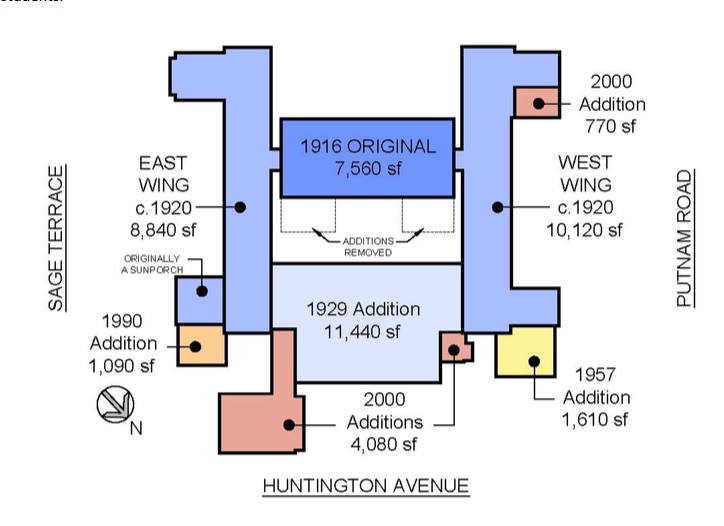The Elephant in the Basement
- Category: On Our Radar
- Published: Sunday, 10 December 2017 09:05
- Joanne Wallenstein
 (This is the opinion of Scarsdale10583 site founder Joanne Wallenstein.) As we prepare to scrape off decades of paint from the walls of Greenacres Elementary School, lift up cracked linoleum flooring and remove asbestos ceiling tiles, no one knows what will be unearthed underneath. And then what? On Monday December 11 the Board of Education is poised to approve a community-wide bond referendum for an expansive addition to the Greenacres Elementary School, though many questions remain about the viability of the existing building, constructed on a high water table in 1916, 1920 and 1929.
(This is the opinion of Scarsdale10583 site founder Joanne Wallenstein.) As we prepare to scrape off decades of paint from the walls of Greenacres Elementary School, lift up cracked linoleum flooring and remove asbestos ceiling tiles, no one knows what will be unearthed underneath. And then what? On Monday December 11 the Board of Education is poised to approve a community-wide bond referendum for an expansive addition to the Greenacres Elementary School, though many questions remain about the viability of the existing building, constructed on a high water table in 1916, 1920 and 1929.
We've tried to get answers to these questions...
Parents have asked the faculty for their thoughts about the school:
• What are the working conditions in the school?
• Have they had health issues due to air quality?
• Can the current structure facilitate 21st Century learning?
The teachers meet our questions with averted eyes and it's evident they are not permitted to speak candidly about their experiences inside the building. What are they hiding and why?
Then there's the environmental testing. After we smelled the mildew in the basement and heard rumors about mold in the building, we asked repeatedly for air quality testing. With the decision for a bond referendum just weeks away and the building committee disbanded, the district finally went ahead with the tests. Lo and behold, at the eleventh hour, they did find mold. In fact after months of delay, the response to Scarsdale10583's FOIL request revealed a long history of moisture and mold in the building. Certainly the district is now doing everything possible to clean it up, but as Assistant Superintendent Stuart Mattey admitted, "We are installing dehumidifiers in the basement to keep it as dry as possible."
Discussing the results of the environmental testing, Superintendent Hagerman said the district had tested 400 sites in the "occupied portions" of the building. What about the unoccupied portions? Has anyone tested those to see if mold is growing there? Don't we need to find the source of the mold? Is it in the dirt crawlspaces underneath the building and behind the classroom walls? How can we otherwise know what the real cost of a building renovation will be? And how can we know whether or not the infrastructure problems can truly be remediated?
The air quality tests also measured the humidity level in the building. The report on the district website says, "The chief problem with high indoor humidity from a health standpoint is the potential for mold growth. Humidity levels greater than 30% increase the potential for mold growth and high humidity, 60% or greater can cause biological contamination." The humidity levels in on the lower level of the school ranged from 63% to 71% and the humidity in the gym was measured at 65%. What are they proposing to do about it?
Another unresolved health concern is the lead pipes. We've been told that for the most part these pipes will remain within the walls and that the district will continue to do periodic testing and use lead filters to make the water safe to drink. Are lead filters a permanent solution? As the pipes age, do they leach more lead into the water? What if the thresholds for safe drinking water are changed in the future? What is the useful life of these lead pipes? What is the cost to do this testing and purchase filters for the next 50 years?
Without this vital information, we can't assess whether it makes sense to add onto the building. If we give the plan the go ahead and the construction crews open the walls and find mold, what will we do?
We need to slow down and get answers. Give the faculty the permission to speak frankly about their views on the building and any health and safety issues they may have. Permit a thorough and independent environmental assessment of the building, and appoint a committee of parents to oversee the work. Lift the veil of fear about open discussion and let's find the right solution together. All of this secrecy makes us skeptical.
The district is rushing to put the referendum to a vote without providing the community with the facts. Stop hiding what you do know and stop preventing the investigation of what we need to know. Let's confront the elephant in the room, or should I say the elephant in the basement. Find out what's down there and then we can discuss what to do next.







